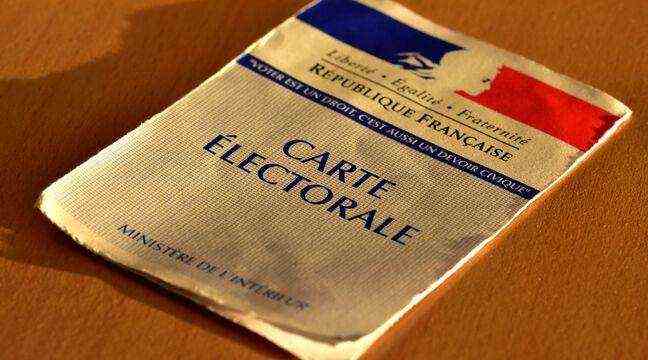According to a recent Ipsos survey exclusively for France Inter*, 87% of young people between the ages of 18 and 30 consider that they have “a great chance” (28%) or that they are “certain” (59%) of going to vote in the presidential election of 2022. A potential electoral tidal wave which, s ‘it materialized in the polls, would decide with the first round of 2017, where 28% of 18-30 year olds abstained.
Obviously, the figure should be taken with a grain of salt, for several reasons. Most obviously, we are months away from the election, and the trends are difficult to draw. Second, the past invites modesty when it comes to this kind of poll: abstention has always struggled to be estimated before an election, sometimes being much worse or less than expected.
Social prestige of the vote
This is partly explained by a well-known phenomenon, the pressure of social valuation. Daniel Boy, Sciences-Po research director, explains: “People in surveys favor the most socially valued responses, despite their anonymity. We must therefore be wary of over-intentions to vote in the polls, which are not reflected in the facts. Even more head-on, the researcher asserts that it is impossible for 87% of young people to vote in the 2022 presidential election.
Beyond these voting intentions, 64% of respondents say they have high expectations vis-à-vis the presidential election next year. “It is all the same a third who say they do not have important expectations on the flagship election of French politics, this shows that young people remain a population more withdrawn than others from politics”, proclaims Daniel Boy .
The ecological issue
Side glass half full, the presidential interest the majority of young people. And this election has always been followed by a vote and a more massive interest than the others, being the ballot registering the least abstention. “The presidential election is the only election that can still massively bring together the youth, because the population feels concerned by the verdict, and believes that it will have an impact on their life”, supports Anne Muxel, sociologist at Cevipof and specialist in young people and politics. In the 2021 region, 87% of 18-24 year olds and 83% of 25-34 year olds had not voted.
The 2022 election could therefore show the greatest participation of young people in recent years, but will it be able to attract them even more than the previous presidential ones? The hypothesis is highly plausible, according to the sociologist, because the ballot will be carried by certain major themes dear to young people: “Ecology and climate issues have become more important in five years, and are a source of anxiety recognized in young people in particular ”. A study published in September in The Lancet Planetary Health claimed that 45% of young people surveyed in ten countries saw their daily life affected by eco-anxiety. In this Ipsos survey, environmental protection comes second in the main concerns of young people.
The economic crisis in all fears
It is the difficulties in terms of purchasing power that are coming to the fore. “Compared to 2012 or 2017, the health and especially economic and social crises experienced by France can push young people to vote more massively,” said Anne Muxel.
The queues in the food queues, a ravaged labor market for the first jobs and the feeling of having confined themselves for others can nourish among the youngest voters the feeling of being a “sacrificed generation” in the face of Covid- 19. For 55% of respondents, young people who were starting to look for a job or who were starting their professional life were thus forgotten during the health crisis. This is the first category cited, ahead of students (40%). “There may be the feeling that politics has not been sufficiently concerned with youth, and that we should vote more massively to change this situation,” concludes the sociologist. It remains to be seen whether, in a few months, these intentions to make their voices heard will be reflected in the polls.
*study carried out from September 24 to 28, 2021 with a national sample of 500 people representative of the French population aged 18 to 29 (quota method)

